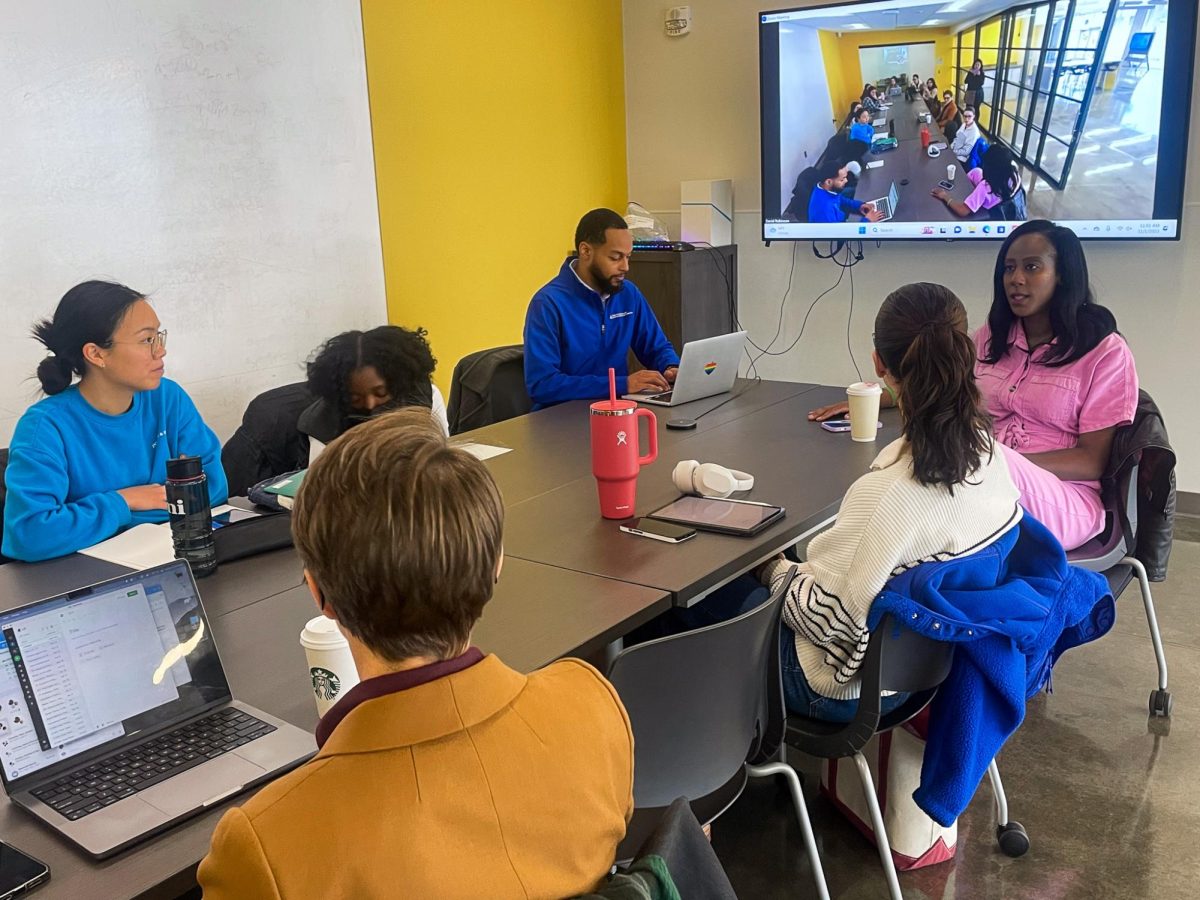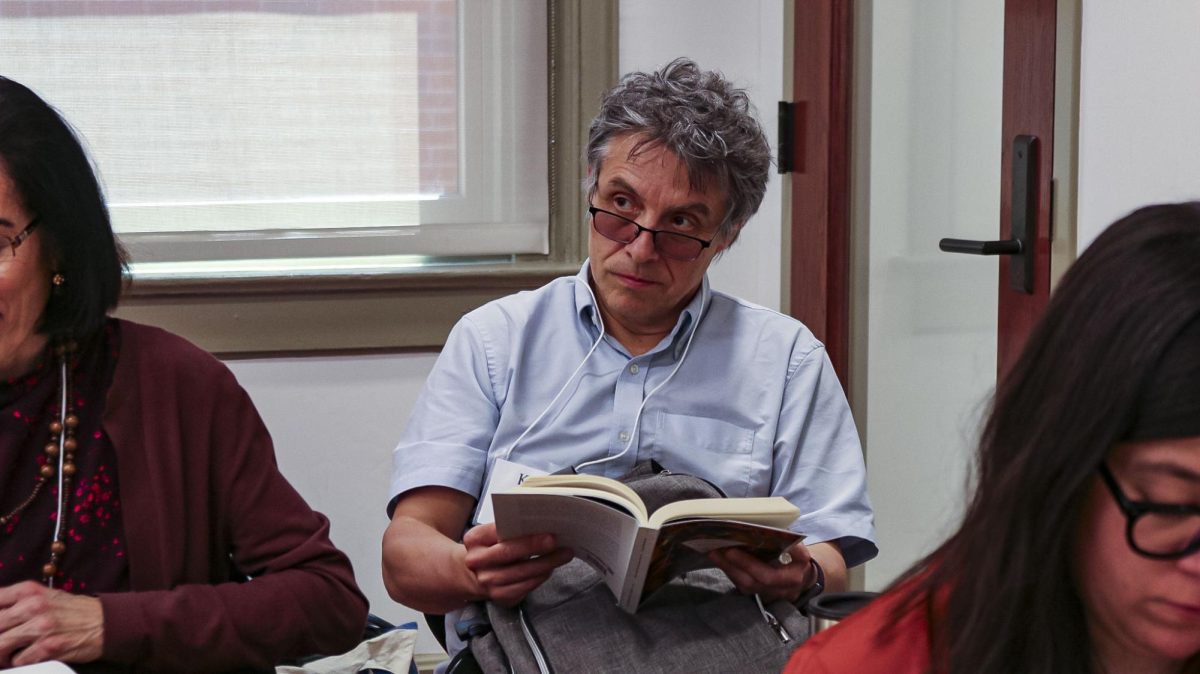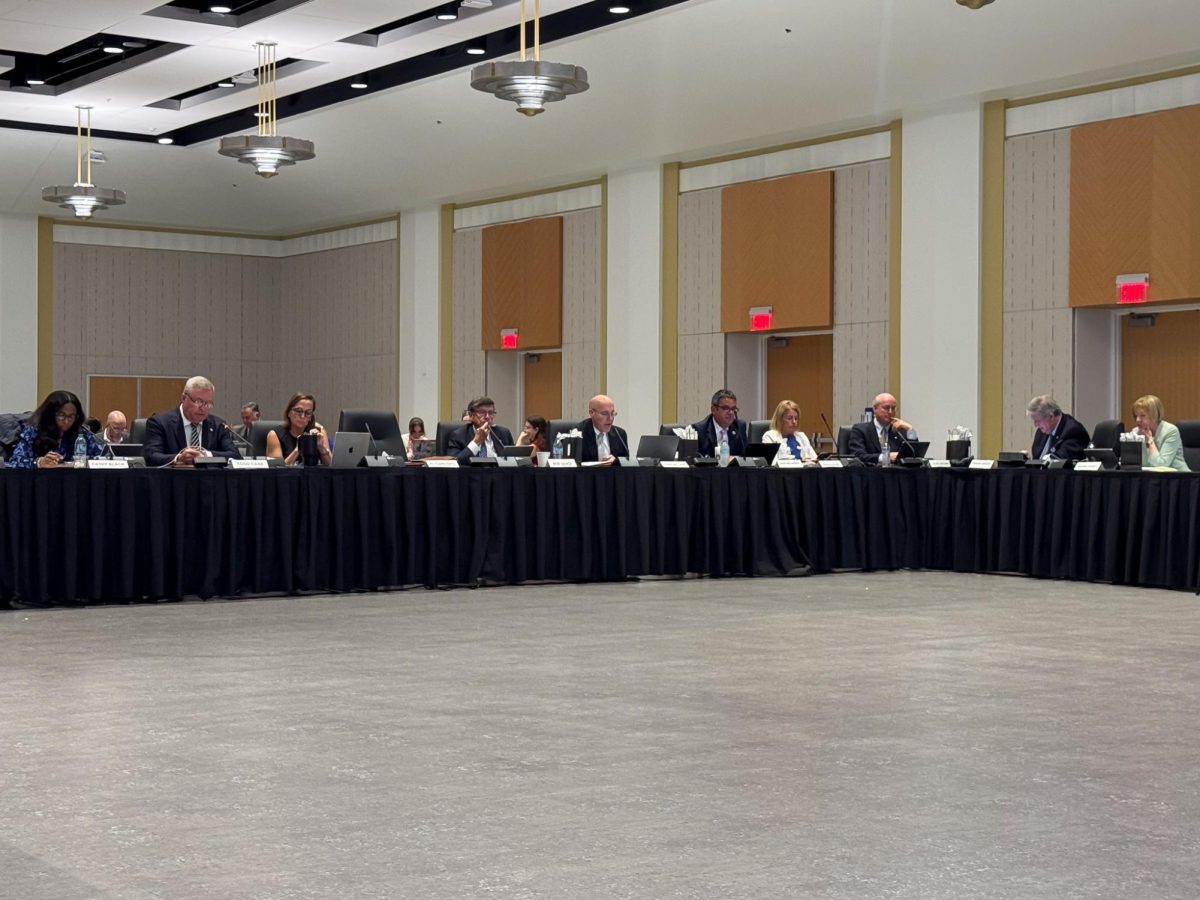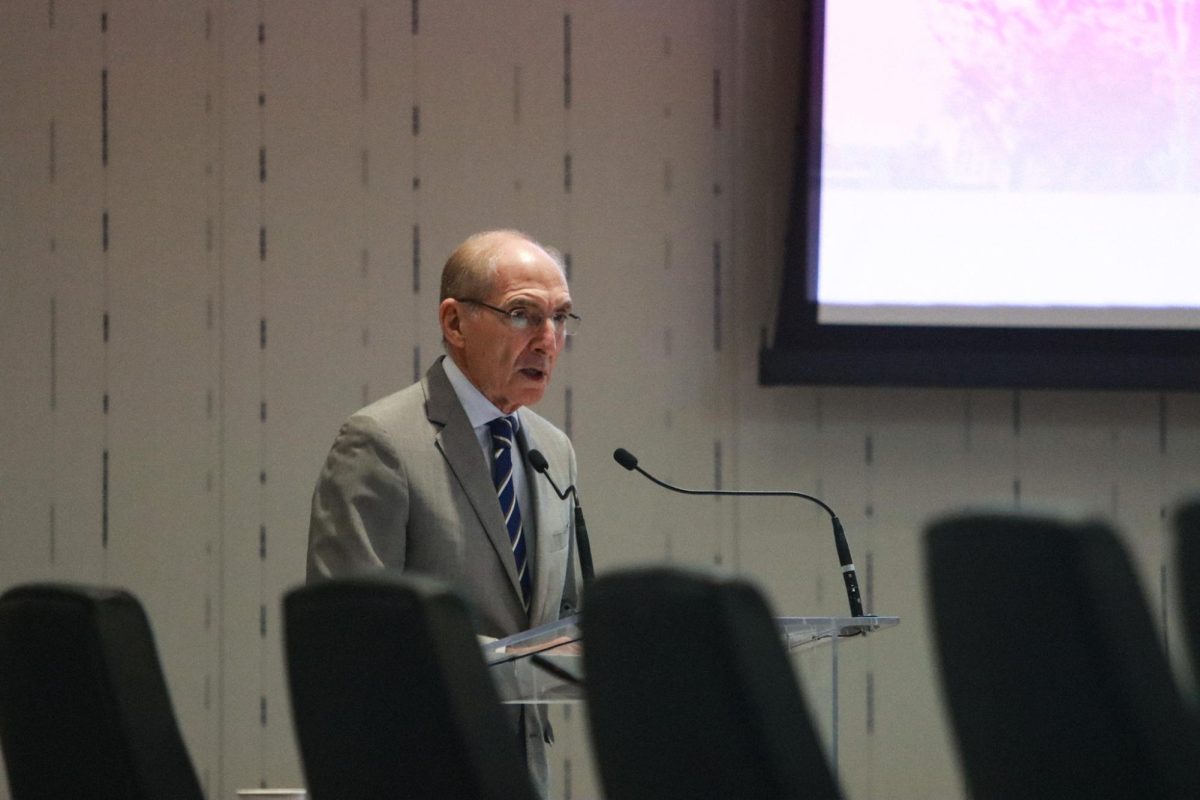UK graduate and senior editor at The Atlantic Jenisha Watts taught a masterclass on journalistic writing, attracting current and former journalism students.
Attendees gathered for the masterclass at The Cornerstone on Nov. 1.
Watts obtained her bachelor of arts from the University of Kentucky in 2008, moving on to the Columbia Graduate School of Journalism. Watts has an extensive history with journalism, writing for several publications, including the Lexington-Herald Leader, People Magazine and ESPN.
Watts is now a senior editor at The Atlantic – a publication whose writers in recent years have received Pulitzer Prizes. The publication as a whole earned the award of General Excellence by the American Society of Magazine Editors, according to The Atlantic.
Working in D.C., Watts said she doesn’t get to visit home often. Visiting her old campus was inspiring to her.
“The campus is beautiful, and the resources you all have are phenomenal… It also feels great to see how much everyone has evolved, how much the school has evolved,” Watts said. “It just seems like there’s a different kind of richness in the energy of the campus, I can feel it, and like I said, the brilliance, everyone here is just so smart, and just curious- you just want to catch it.”
Watts shared insight on how she succeeded in the world of journalism, advising the writers in attendance. She invited attendees to pitch ideas to her, helping them form new plans and assist in building their stories, even inviting them to send her any work they wanted her to look over.
UK 2020 graduate Bailey Vandiver said Watts’ visit was insightful.
“I particularly love when we get to have someone who graduated from the University of Kentucky and has gone on to great success and come back and share tips with us here in Kentucky,” Vandiver said.
Young journalists also had the opportunity to learn from several of Watts’ coworkers via Zoom.
Jack Segelstein, associate editor at The Atlantic and freelance editor, as well as Watt’s boss, Honor Jones, Senior Editor at The Atlantic, shared their experiences in the field of journalism.
Jones, Watts and Segelstein are all a part of the “ideas team” at the publication. The three answered questions and gave advice to those in attendance.
Segelstein spoke of the different roles he’s had during his journalism career, such as fact-checking and editing positions.
“One thing I say is there’s a good chance that in your first job out of school, or maybe your first job in school, you’ll be doing something that you know you won’t want to spend the rest of your career doing, and for me, that was fact-checking,” Segelstein said. “There were some enjoyable parts of it, but the best parts of it were the parts that sort of gave me a window onto the elements of journalism that I was more interested in.”
Segelstein also shared what he looks for in freelance writer’s pitches to him.
“We want to make sure they have a diverse perspective, that they have something to contribute that would add something different to how we previously covered that issue,” Segelstein said. “We’re also looking for indications that that specific writer is the right person to write about this issue in this way. The more you can make that case for yourself in a pitch, I think the better.”
Jones said he edited the essays of Pulitzer Prize winners and interned at Harper’s Magazine straight out of college, moving on to write for the New York Times and now landing at The Atlantic.
Jones also edited Watts’ famous essay, “I Never Called Her Momma.”
“My favorite thing to edit, though, is personal essays. That’s sort of one of my areas, and that’s why I was so lucky I got to work on Jenisha’s incredible cover story, which is really like the most rewarding story that I’ve worked on, certainly at The Atlantic, probably in my career. I just loved working with her on that,” Jones said.
Jones’ position consists of listening to pitches from her writers. Jones says the best thing to do with a personal story pitch is to “just write it.”
“You just have to write it and see how your voice comes through… I think, doing it on your own time and submitting it as a finished draft, and saying like, ‘Hey, I’m so and so and I’m a student or a writer or whatever, and I have this story, would you like to read it?’ and just send it,” Jones said. “I think that’s better than pitching. It’s just so much more effective if I have something that I can look at the first paragraph of.”
The students taught Watts some things, too.
“The topics, what people are thinking about, what the writers are thinking about writing in their areas of interest … just the richness of the stories in Kentucky, I think that’s the biggest thing,” Watts said. “It’s more of the topics and what you guys are thinking about, it’s kind of inspiring too, cause you miss this… the thoughts and the passion and the brilliance of the writers.”



































































































































































